Climbing demands more than just physical strength—it requires endurance, focus, and efficient recovery. The right climbing nutrition plan can significantly enhance your performance on the wall and aid in faster recovery. Whether you’re bouldering indoors or tackling a multi-pitch route outdoors, proper fueling is crucial for sustained energy and injury prevention.
I used to be the type of climber who ate conservatively before a climb—something I later realized was a big mistake. I hope this guide helps you avoid the same pitfalls I experienced and provides actionable nutrition tips to fuel your climbing journey.
Table of Contents
Prioritize Whole Foods
A strong climbing diet starts with whole, nutrient-dense foods that provide sustained energy.
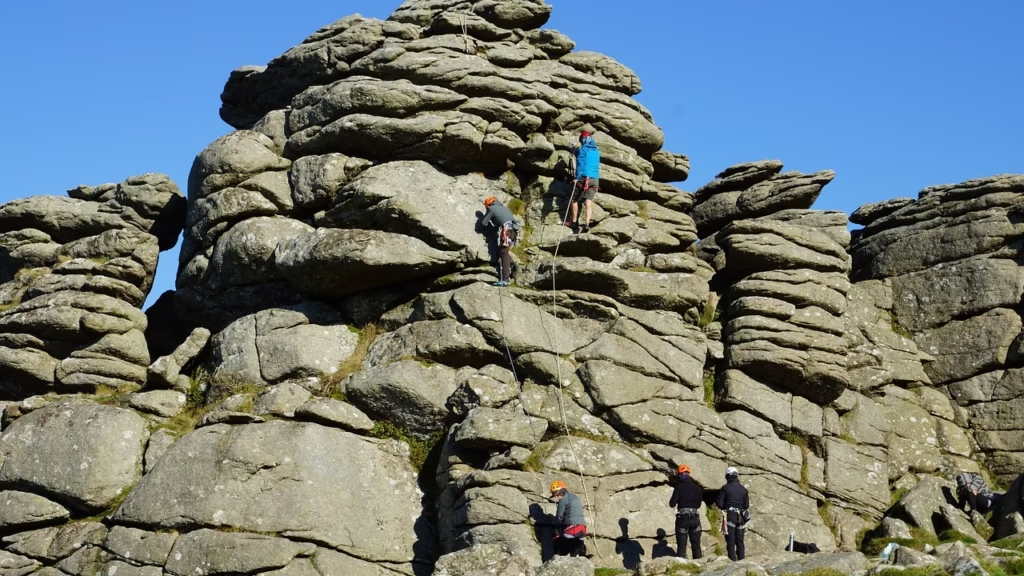
- Choose a variety of fruits, vegetables, whole grains, lean proteins, and healthy fats to fuel your sessions.
- Limit processed foods and sugary snacks, which can cause energy crashes.
- Incorporate foods rich in antioxidants and anti-inflammatory properties, such as berries, leafy greens, and olive oil, to aid muscle recovery.
- Eating a colorful variety ensures you get essential vitamins and minerals for muscle and bone health.
Fuel Up Before Climbing
What you eat before climbing can make or break your performance.
- 2-3 hours before climbing: Eat a balanced meal with complex carbs, lean protein, and healthy fats.
- Examples: Oatmeal with nuts and berries, a turkey sandwich with avocado, or sweet potato with grilled chicken.
- 30-60 minutes before climbing: Have a light, easily digestible snack for quick energy.
- Examples: Banana with almond butter, a handful of nuts and dried fruit, or a granola bar. I like to eat RAW bars, packed with dried fruits and nuts.
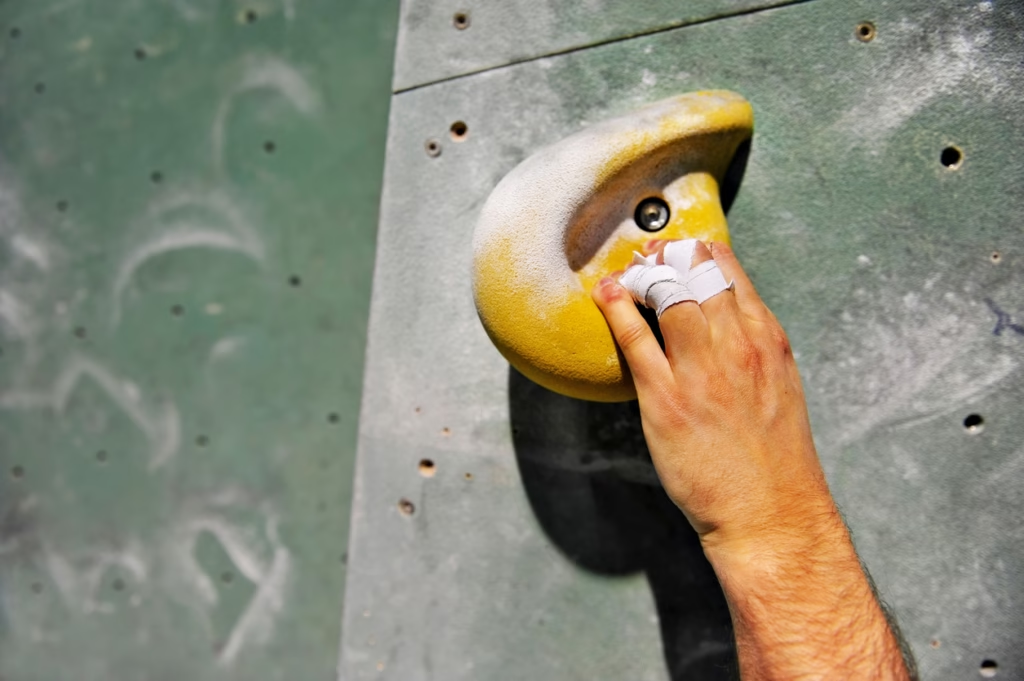
- Avoid greasy, heavy, or high-fiber foods that may cause digestive discomfort while climbing.
Stay Hydrated
Hydration is crucial for muscle function, focus, and endurance.
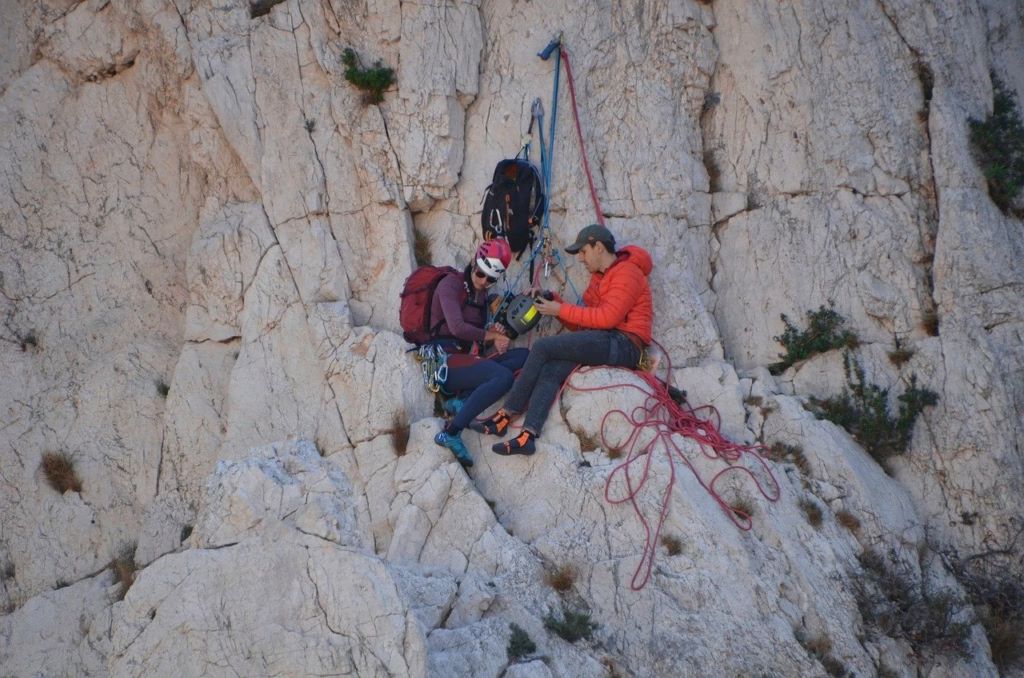
- Aim to drink at least 2 liters (8 glasses) of water daily to stay hydrated.
- For intense or prolonged climbing sessions, consider an electrolyte drink or add a pinch of salt to your water to replenish lost minerals.
- Monitor your hydration by checking urine color—pale yellow indicates good hydration, while darker shades suggest you need more fluids.
- Don’t overdo it—excess water can lead to bloating, which may affect your performance.
Some of my friends don’t drink water at all while climbing, but in general, staying hydrated is important for maintaining performance and preventing fatigue. Everyone’s hydration needs are different, but making sure to drink enough water—whether before, during, or after a session—can help with focus, muscle function, and overall endurance.
Replenish During Long Sessions
For climbing sessions lasting longer than 90 minutes, it’s essential to refuel properly to maintain energy levels.
- Consume 30-60 grams of carbohydrates per hour to keep your performance steady.
- Snack on easy-to-digest options such as:
- Bananas
- Energy gels
- Dried fruit
- Sports drinks
- Sip water regularly to prevent dehydration, which can reduce strength and focus.
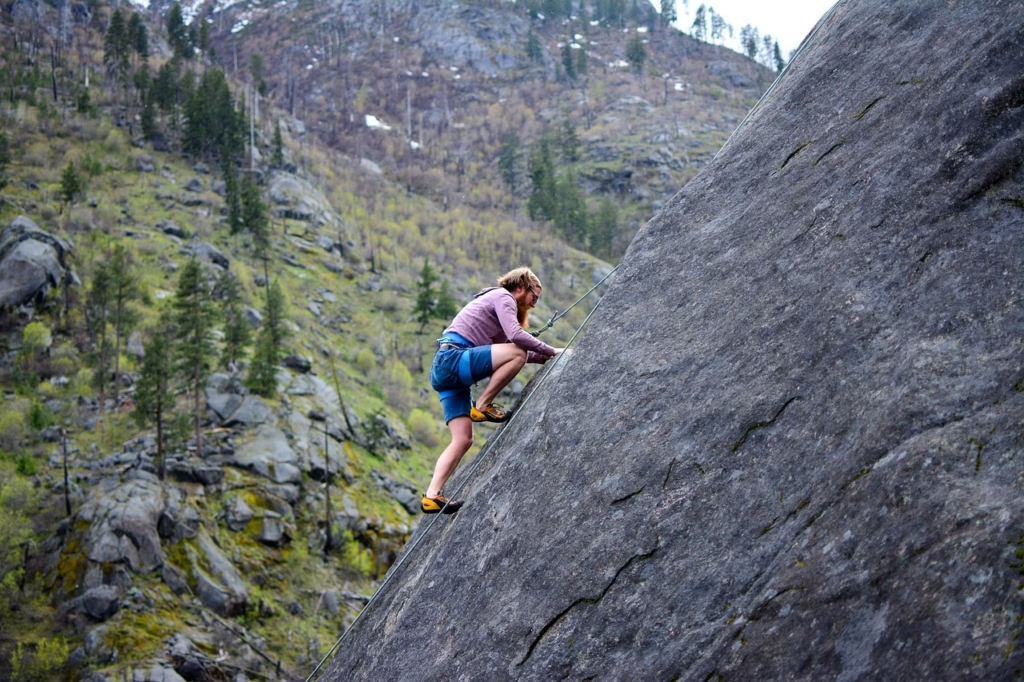
Recover with Protein and Carbs
Recovery is just as important as climbing itself. Refueling properly helps muscle repair and glycogen restoration.
- Within 30 minutes post-climb, aim for a 3:1 ratio of carbs to protein, such as:
- Protein smoothie with banana
- Greek yogurt with berries
- Turkey and avocado wrap
- Maintain a daily protein intake of 1.6-2.0 grams per kilogram of body weight to support muscle development.
Don’t Fear Healthy Fats
Fats play a crucial role in long-term energy and hormone regulation for climbers.
- Include sources of healthy fats such as:
- Avocados
- Nuts and seeds
- Olive oil
- Fatty fish like salmon
- Limit processed and trans fats often found in junk food, as they can hinder performance and recovery.
- Remember that fats are calorie-dense, so manage portion sizes according to your climbing goals.
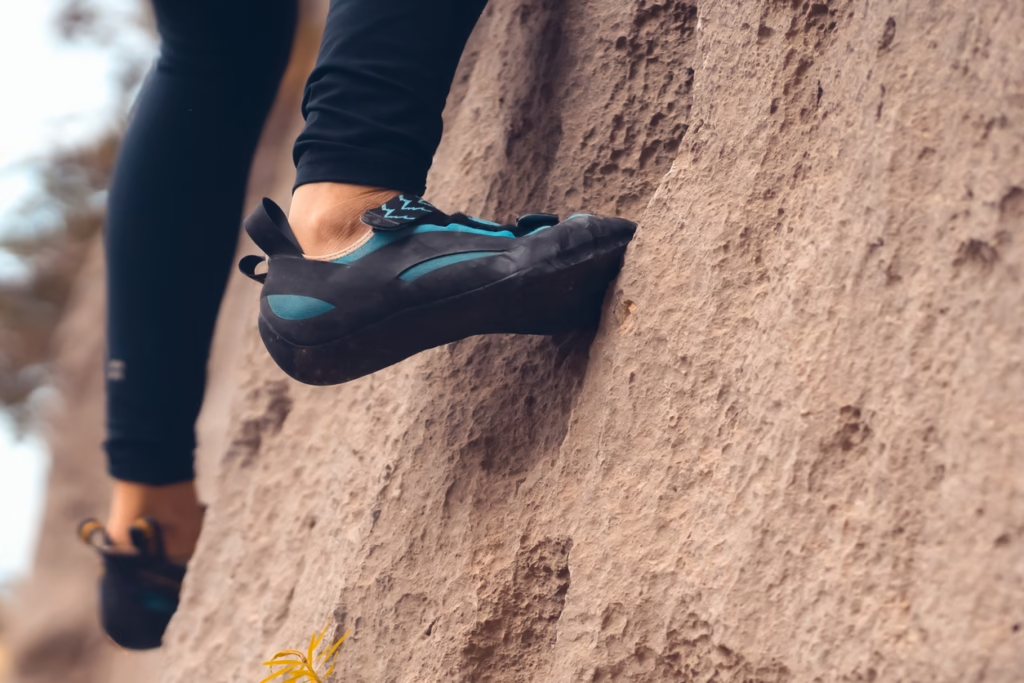
Balance Your Macronutrients
Achieving the right balance of macronutrients is key to supporting energy, muscle function, and recovery.
- Carbohydrates: 45-65% of daily intake from whole grains, fruits, and vegetables for sustained energy.
- Protein: 15-30% to aid muscle repair and strength building.
- Fats: 20-35% to provide long-term energy and support recovery.
Adjust your intake based on climbing intensity, goals, and body type to optimize performance.
Listen to Your Body
One of the most important aspects of nutrition for climbers is learning to recognize your body’s signals.
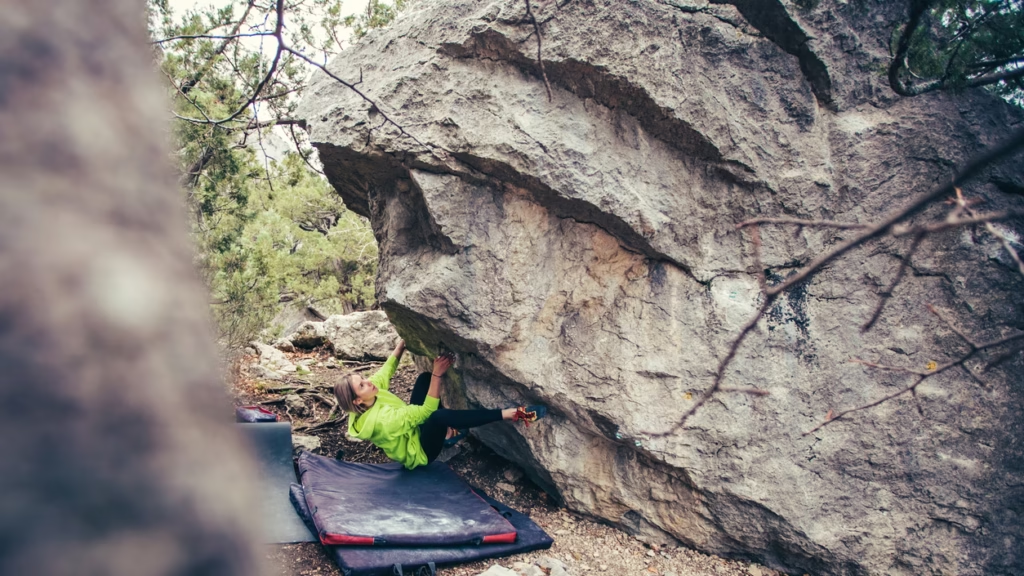
- Eat when you’re hungry and stop when you’re full to avoid unnecessary calorie restriction.
- Pay attention to how different foods affect your energy and digestion during climbs.
- Every climber’s body responds differently—experiment to find what works best for you.
Seek Professional Guidance
If you’re serious about optimizing your climbing diet, consider working with a registered dietitian or sports nutritionist. I haven’t tried it myself, but I’ve heard from others that it has helped them significantly.
- A professional can provide personalized recommendations based on your goals, climbing style, and dietary restrictions.
- Avoid extreme diets or quick fixes that may compromise energy levels and long-term performance.
Climbing nutrition is a game-changer when it comes to improving endurance, strength, and recovery. Prioritizing whole foods, staying hydrated, and fueling appropriately before and after climbing can make a significant difference in your performance. Remember to listen to your body and stay consistent—over time, proper nutrition will help you climb stronger and longer.
FAQs
What do mountain climbers eat?
Mountain climbers need a high-energy diet rich in complex carbohydrates, lean proteins, and healthy fats. Common foods include oatmeal, nuts, dried fruit, whole grain wraps, and energy bars to sustain endurance.
How should climbers adjust their diet on climbing days vs. rest days?
On climbing days, prioritize carbohydrates for sustained energy and moderate protein intake for muscle repair. On rest days, focus more on protein and healthy fats while slightly reducing carbs.
What are the best pre-climb snacks for energy?
Good pre-climb snacks include bananas with peanut butter, Greek yogurt with granola, or whole-grain toast with avocado. These provide quick energy without weighing you down.
How much water should climbers drink to stay hydrated?
Climbers should aim to drink at least 2 liters of water daily, and during climbs, sip water regularly to prevent dehydration. Electrolytes may be needed for longer or more intense sessions.
Are supplements beneficial for climbers?
Supplements like protein powder, electrolytes, and omega-3s can support recovery and hydration, but they should complement a well-rounded diet rather than replace whole foods. Always consult a professional before taking supplements.


